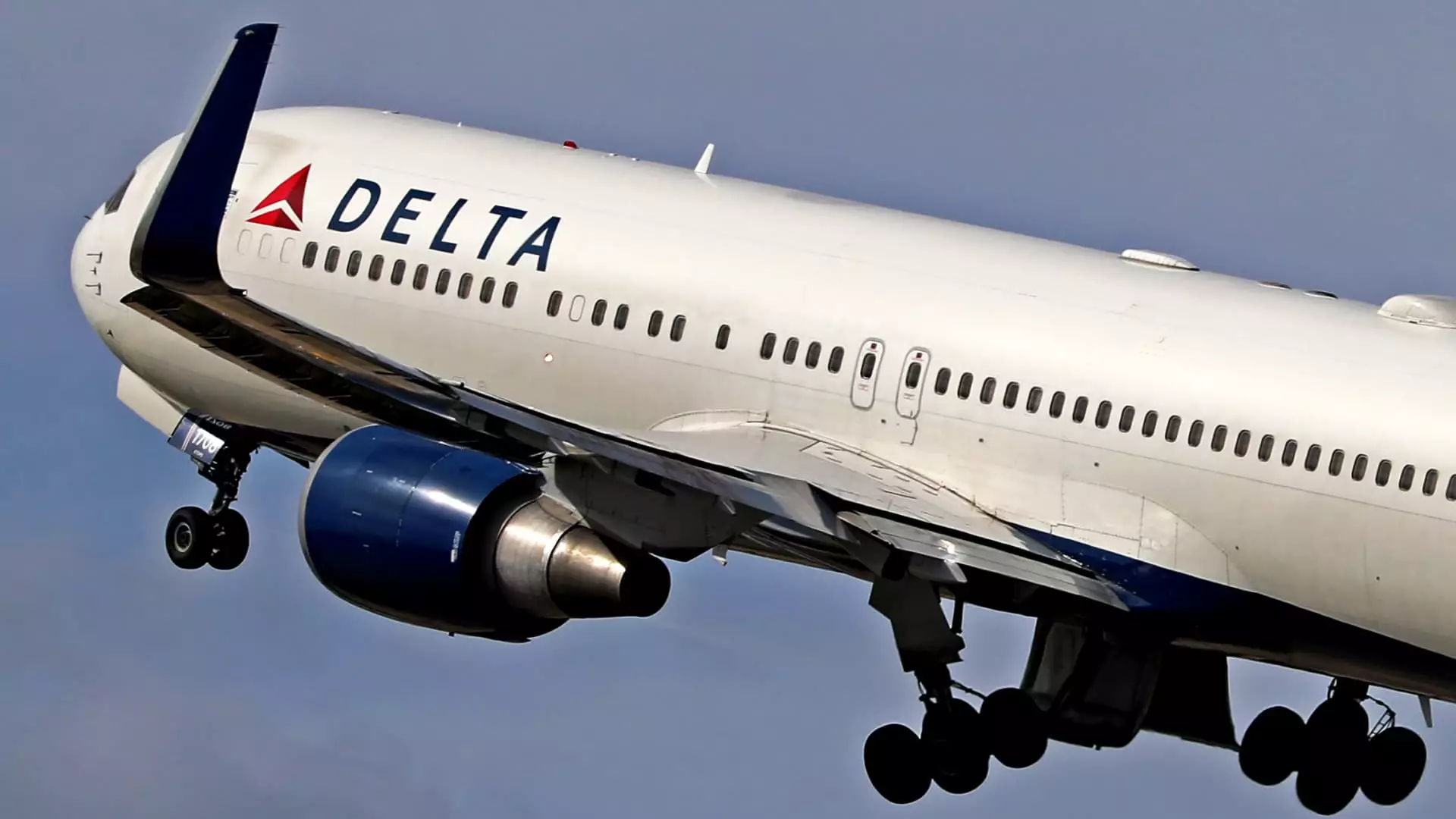The recent downward spiral of airline stocks is sending shockwaves through the market, painting a grim picture for one of America’s most beloved service industries. On Tuesday, Wall Street’s worries over tepid travel demand and increasing tariffs forced a stark reckoning among airline executives, sending stock prices plummeting further into disarray. Notably, Delta Air Lines, which had long prided itself on being the most profitable airline in the U.S., saw its shares fall more than 2% following a bleak downgrade by Jefferies. This represents much more than just a number on a screen—the decline signifies a monumental loss of investor faith and a pivotal moment that could reshape the industry’s outlook.
Consumer Confidence Hits a Nerve
At the heart of the issue lies a destructive drop in consumer confidence. The Bank of America recently revealed that spending on airlines had dipped by a staggering 7.2%, a sharp contrast to the broader increase of 1.5% in overall household spending. This alarming trend suggests that Americans are increasingly reconsidering their travel plans, perhaps due to a confluence of bad weather and economic uncertainty. However, the hesitation to book flights also highlights a deeper issue: are travelers abandoning the notion of leisure travel as financial anxieties grip the country? This decline isn’t merely a hiccup; it reflects a shift in the American psyche, where once spontaneous trips are now subject to heightened scrutiny and second-guessing.
Price Sensitivity: The New Reality
The challenges mounting in the airline sector largely stem from a changing consumer profile. With more price-sensitive travelers holding tighter to their wallets, it seems rational for airlines to pivot and court wealthier customers. Delta’s revenue growth in its premium cabins could be viewed as a silver lining, but one must question the long-term sustainability of focusing on higher-end offerings in an environment where the average traveler is becoming increasingly cautious. As Jefferies pointed out, the expectation of reducing financial forecasts for Delta and others indicates a troubling trend; the financial safety net upon which these companies depend may be fraying.
Impending Earnings Reports: A Night of Reckoning
As the earnings season begins, all eyes will be on Delta as it prepares to release its financial results. The anticipation is palpable, with industry analysts eagerly awaiting metrics that could either bolster or further decimate the airline’s credibility. Should Delta fail to meet the lowered expectations, it could trigger a cascade effect among its peers, particularly in an environment where airlines like American and Southwest are already struggling to maintain their standings. This collective downturn is not just about stock prices—it’s about jobs, investment, and the broader implications for the economy at large.
The Critical Crossroads of the Airline Industry
What the airline industry faces today is far more than fiscal hurdles; it’s a definitive crisis of confidence. Faced with a volatile mix of economic pressures, a squeezed consumer base, and a shifting travel market, airlines must recalibrate their strategies or risk being left behind. Unlike previous downturns, which often stemmed from external events like natural disasters or regulatory changes, the root of this challenge is staring the industry in the face: the philosophy of modern travel itself is evolving. Adapting to these trends is no longer optional; it’s a necessity for survival. With the essential fabric of consumer confidence fraying, the stakes have never been higher in this turbulent sky of uncertainty.


Leave a Reply